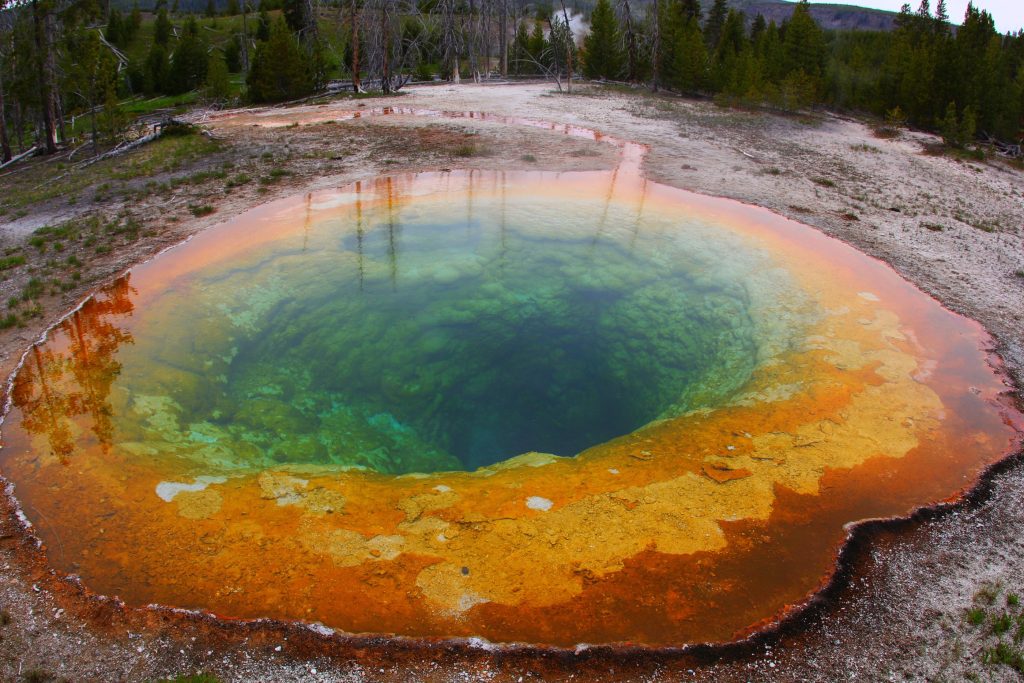Hot spring chicken: 3 cited for Yellowstone culinary caper

Cooking chickens in a Yellowstone hot spring landed three people in hot water.
A park ranger heard that a group with cooking pots were hiking toward the park’s Shoshone Geyser Basin. The ranger found two whole chickens in a burlap sack in a hot spring. A cooking pot was nearby, Yellowstone spokeswoman Linda Veress said.
Eric Roberts, of Idaho Falls, Idaho, and Dallas Roberts, of West Valley City, Utah, were ordered to serve two days in jail and pay $540 in fines and fees for the Aug. 7, incident, according to court documents.
Eric Romriell, of Idaho Falls, paid $1,250 in fines and fees. All three are banned from Yellowstone while serving two years of unsupervised probation.
In blue and red states, milestone wins for LGBTQ candidates

Across the nation, LGBTQ candidates achieved milestone victories in Tuesday’s election, including the first transgender person elected to a state Senate, and the first openly gay Black men to win seats in Congress.
The landmark wins came not in only blue but also red states such as Tennessee, where Republican Eddie Mannis, who is gay, and Democrat Torrey Harris, who identifies as bisexual, won seats in the state House to become the first openly LGBTQ members of that legislature.
According to the LGBTQ Victory Fund, which recruits and supports LGBTQ candidates, that leaves only Alaska, Louisiana and Mississippi as states that have never elected an LGBTQ legislator.
Utah’s attorney general takes time off to aid Trump campaign

Utah’s newly reelected attorney general said Friday he is taking personal leave time to help support President Donald Trump’s legal challenges to election procedures. Trump has claimed without evidence that the vote is unfair and rigged.
Republican Attorney General Sean Reyes wrote on Twitter that he’ll be helping support litigation in several states dealing with what he called a “compromised” election process. State and federal officials have not reported any instances of widespread voter fraud.
“Biden & his allies know @POTUS will win if only verified, #legal votes are counted,” Reyes wrote. “We are making sure that happens but looks like courts may have to decide that.”
5 states OK measures eradicating racist language, symbols

Alabama voters reversed themselves from a few years ago and removed racist vestiges of segregation from the state constitution that courts long ago ruled unconstitutional. Rhode Island did a similar U-turn to eradicate the word “plantations” from the state’s official name.
In a year when discussions of racial justice have dominated U.S. society like few others, five states voted to cleanse the public sphere of words, phrases and symbols that were painful reminders of the nation’s history of slavery and the systematic oppression of Black people.
In addition to the votes in Alabama and Rhode Island, residents of Utah and Nebraska decided to strip their constitutions of unenforceable provisions that allowed slavery as a punishment for criminal convictions. And Mississippi voters approved a state flag without the familiar X-shaped design of the Confederate battle flag.




